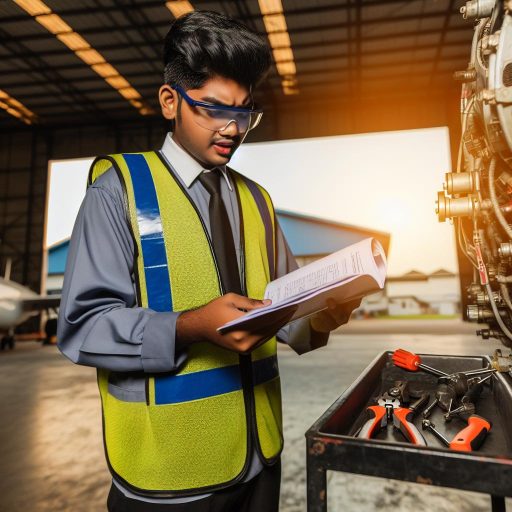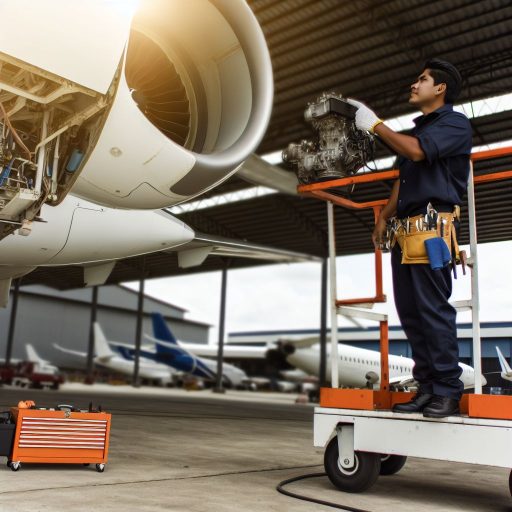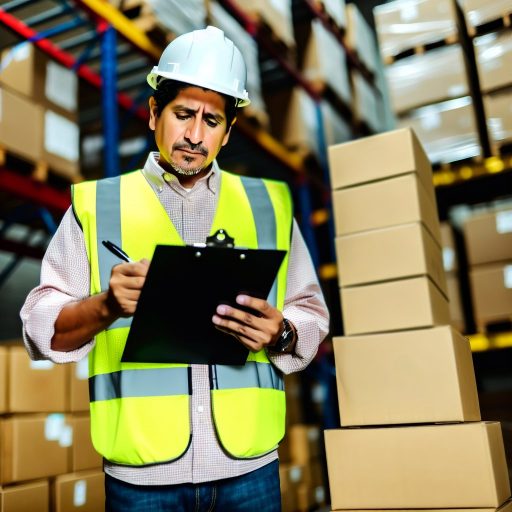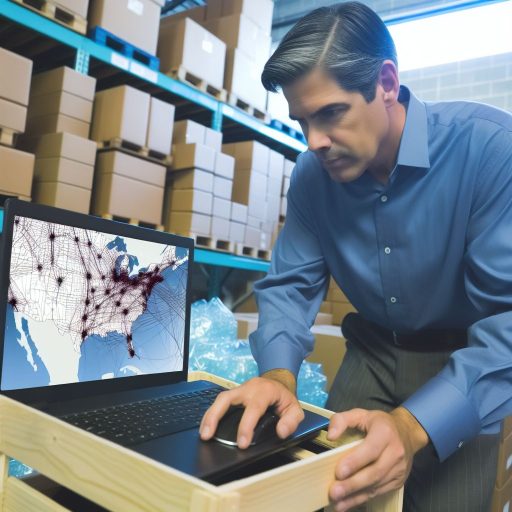Introduction:
In the world of engineering, both packaging engineers and industrial engineers play vital roles in ensuring efficient processes in various industries.
Packaging Engineers:
Packaging engineers focus on designing and creating packaging for products, ensuring they are functional, protective, and visually appealing.
They work closely with product designers to develop packaging that meets specific requirements and enhances the overall product experience.
Industrial Engineers:
Industrial engineers, on the other hand, are focused on optimizing complex systems and processes within industrial settings.
They analyze production processes, identify inefficiencies, and develop solutions to improve productivity, quality, and safety.
Importance in Various Industries:
Both packaging engineers and industrial engineers are crucial in a wide range of industries, including manufacturing, food and beverage, pharmaceuticals, and logistics.
Packaging engineers ensure products are properly protected during shipping and storage, while industrial engineers streamline production processes to reduce waste and maximize output.
Both roles are essential for businesses to operate efficiently and effectively, meeting customer demands while minimizing costs and environmental impact.
Education and Training:
Academic requirements for becoming a packaging engineer:
A bachelor’s degree in packaging engineering or related field is essential.
Courses in chemistry, materials science, and design are commonly required.
Some employers may prefer candidates with a Master’s degree for advanced roles.
Academic requirements for becoming an industrial engineer:
A bachelor’s degree in industrial engineering or a related field is necessary.
Courses in mathematics, statistics, and production systems are typically required.
Advancement in the field may require a Master’s degree or specialized certification.
Specialized skills and certifications required for each role:
- Packaging engineers need expertise in materials science and design principles.
- Certifications like the Certified Packaging Professional (CPP) can enhance credibility.
- Industrial engineers require skills in optimization, process improvement, and supply chain management.
- Certifications like Six Sigma or Lean Manufacturing can add value to their skill set.
Job Responsibilities:
- Specific duties of a packaging engineer include designing packaging materials, testing packaging for durability, and optimizing packaging for cost efficiency.
- Specific duties of an industrial engineer involve analyzing production processes, improving efficiency, and implementing new systems to increase productivity.
- The job responsibilities differ between the two roles as packaging engineers focus on the design and optimization of packaging materials, while industrial engineers work on improving overall production processes and systems.
Packaging Engineer Responsibilities:
Packaging engineers play a critical role in the design and development of packaging materials for various products.
They must ensure that the packaging meets all necessary requirements while also being cost-effective and environmentally friendly.
Some specific duties of a packaging engineer include:
- Designing packaging materials that are both functional and aesthetically pleasing.
- Testing packaging materials for durability, ensuring they can withstand the rigors of transportation and storage.
- Optimizing packaging designs to minimize waste and reduce costs.
- Collaborating with cross-functional teams to ensure packaging meets product specifications and regulatory requirements.
- Researching new packaging materials and technologies to improve efficiency and sustainability.
Industrial Engineer Responsibilities:
Industrial engineers focus on improving efficiency and productivity within production processes.
They analyze data, identify areas for improvement, and implement strategies to streamline operations and reduce waste.
Some specific duties of an industrial engineer include:
Transform Your Career Today
Unlock a personalized career strategy that drives real results. Get tailored advice and a roadmap designed just for you.
Start Now- Analyzing production processes to identify bottlenecks and inefficiencies.
- Developing and implementing new systems and processes to optimize workflow.
- Conducting time studies and work measurements to improve productivity.
- Designing layouts and workspaces to maximize efficiency and safety.
- Collaborating with production teams to implement process improvements and quality control measures.
Differences in Job Responsibilities:
The key difference between packaging engineers and industrial engineers lies in their primary focus.
Packaging engineers concentrate on the design and optimization of packaging materials, while industrial engineers work on improving overall production processes and systems.
- Packaging engineers are specifically concerned with the functionality, durability, and cost efficiency of packaging materials.
- Industrial engineers, on the other hand, focus on analyzing and improving production processes to increase efficiency and productivity.
- While both roles may involve aspects of project management and collaboration with other teams, the core responsibilities of each job are distinct.
Find Out More: Work Environment for Transportation Analysts
Industry Focus:
Industries that typically employ packaging engineers:
- Packaging engineers in the food and beverage industry design packaging solutions that maintain product freshness and extend shelf life.
- In the pharmaceutical industry, packaging engineers ensure the safety and integrity of medical products through innovative packaging designs.
- In the consumer goods sector, packaging engineers create appealing and functional packaging for various products to attract consumers.
Industries that typically employ industrial engineers:
- Industrial engineers optimize production processes, improve efficiency, and reduce costs in manufacturing plants.
- In the automotive sector, industrial engineers work on enhancing production lines, minimizing waste, and maximizing productivity in automobile manufacturing.
- Industrial engineers focus on streamlining distribution processes, inventory management, and logistics operations to improve overall efficiency.
How the industry focus impacts the job duties and projects of each role:
Packaging engineers focus on developing packaging solutions tailored to specific industries’ needs, considering factors like product fragility, shelf stability, and branding.
On the other hand, industrial engineers concentrate on process improvement, system optimization, and cost reduction across various industries.
The industry focus influences the type of projects each role undertakes, with packaging engineers working on product-specific packaging designs and industrial engineers focusing on overall system efficiency.
Discover More: Key Performance Metrics for Freight Agents
Collaboration and Communication:
When it comes to collaboration and communication, both Packaging Engineers and Industrial Engineers need to interact with other professionals in their field to ensure the success of their projects.
Interactions with Other Professionals in the Field:
- Packaging Engineers often collaborate with graphic designers, materials suppliers, and marketing teams to create effective packaging solutions.
- Industrial Engineers work closely with production managers, quality control specialists, and logistics professionals to optimize manufacturing processes.
- Both professionals need to communicate clearly with cross-functional teams to address challenges and achieve project goals.
Importance of Effective Communication Within and Outside the Team:
- Effective communication is crucial for Packaging Engineers to convey their design ideas and specifications to stakeholders.
- Industrial Engineers must communicate production schedules, process improvements, and cost-saving measures to the team.
- Both roles require the ability to listen actively, provide feedback, and collaborate with team members effectively.
How Collaboration Differs Between Packaging Engineers and Industrial Engineers:
- Packaging Engineers focus on designing packaging solutions that protect products and enhance the customer experience.
- Industrial Engineers concentrate on optimizing processes, reducing waste, and improving efficiency in manufacturing facilities.
- While both roles involve collaboration, the focus and goals of their projects differ based on their areas of expertise.
Effective collaboration and communication are essential skills for both Packaging Engineers and Industrial Engineers to succeed in their respective fields.
By working closely with other professionals and fostering open communication within their teams, these engineers can drive innovation and achieve project success.
Find Out More: Ethical Considerations in Supply Chain Analysis
Salary and Job Outlook:
Average salary range for packaging engineers:
Packaging engineers typically earn an average salary ranging from $60,000 to $100,000 per year.
This range can vary based on factors such as years of experience, location, and the specific industry.
Entry-level packaging engineers may start at around $60,000 per year, while experienced professionals can earn upwards of $100,000.
Top industries for packaging engineers include consumer goods, pharmaceuticals, food and beverage, and cosmetics.
Average salary range for industrial engineers:
Industrial engineers generally earn an average salary ranging from $65,000 to $110,000 per year.
Salaries can be influenced by factors such as location, industry, level of education, and years of experience.
Entry-level industrial engineers may start at around $65,000 per year, with experienced professionals earning over $110,000 annually.
Top industries for industrial engineers include manufacturing, healthcare, transportation, and technology.
Job growth and employment prospects for both roles in the future:
Both packaging and industrial engineering are projected to experience steady job growth in the coming years.
Transform Your Career Today
Unlock a personalized career strategy that drives real results. Get tailored advice and a roadmap designed just for you.
Start NowThe Bureau of Labor Statistics forecasts a 3% growth rate for industrial engineers from 2020 to 2030.
On the other hand, packaging engineers are expected to see a 4% growth rate in employment during the same period.
As industries continue to evolve and advance, the demand for skilled engineers in both fields is likely to remain strong.
Both packaging engineers and industrial engineers can look forward to promising career opportunities and competitive salaries in the future.
Find Out More: Job Security and Stability in the Bus Driving Industry

Advancement Opportunities:
Career paths for packaging engineers:
- Packaging engineers can advance to senior packaging engineer roles, overseeing larger projects and teams.
- They can also move into management positions, such as packaging manager or director of packaging.
- Some packaging engineers may choose to specialize in a specific industry, such as food packaging or medical packaging.
- With experience and additional education, packaging engineers can become subject matter experts in packaging design and materials.
Career paths for industrial engineers:
- Industrial engineers can progress to senior industrial engineer roles, leading complex process improvement projects.
- They may also move into management positions, such as operations manager or director of continuous improvement.
- Some industrial engineers may choose to specialize in a specific industry, such as manufacturing or healthcare.
- With certifications and additional education, industrial engineers can become Six Sigma Black Belts or Lean Six Sigma experts.
How promotions, certifications, and additional education can lead to advancement in each role:
- Promotions for packaging engineers often come with demonstrated leadership skills and successful project outcomes.
- Obtaining certifications such as Certified Packaging Professional (CPP) can enhance credibility and open up advancement opportunities.
- Pursuing additional education, such as a master’s degree in packaging engineering, can qualify packaging engineers for higher-level positions.
- For industrial engineers, promotions are typically based on performance evaluations, project outcomes, and leadership capabilities.
- Acquiring certifications like Certified Industrial Engineer (CIE) can increase marketability and pave the way for career growth.
- Continuing education, such as earning a Lean Six Sigma certification, can demonstrate expertise and facilitate advancement in industrial engineering roles.
Challenges and Rewards:
Common challenges faced by packaging engineers:
- Meeting strict regulatory requirements for packaging materials.
- Designing sustainable and environmentally friendly packaging solutions.
- Balancing cost-effectiveness with packaging quality and efficiency.
- Keeping up with rapidly evolving packaging technologies and innovations.
- Collaborating effectively with cross-functional teams in product development.
Common challenges faced by industrial engineers:
- Optimizing manufacturing processes for maximum efficiency and productivity.
- Managing complex supply chains and logistics operations.
- Reducing waste and improving overall production sustainability.
- Implementing lean principles to streamline operations and eliminate inefficiencies.
- Dealing with tight deadlines and high-pressure production environments.
Rewards and fulfillment that come with overcoming these challenges in each role:
- For Packaging Engineers:
- Creating packaging solutions that improve product safety and consumer satisfaction.
- Contributing to environmental sustainability by designing eco-friendly packaging materials.
- Being at the forefront of innovation in packaging technology and design.
- Gaining recognition for successful collaboration with cross-functional teams.
- Seeing products go to market successfully with effective packaging solutions.
- For Industrial Engineers:
- Implementing process improvements that boost productivity and cost savings.
- Optimizing supply chains to enhance operational efficiency and reduce waste.
- Leading continuous improvement initiatives that drive organizational success.
- Applying lean principles to create a culture of efficiency and excellence.
- Overcoming challenges to deliver high-quality products on time and within budget.
Packaging Engineer vs. Industrial Engineer
When considering the differences between a packaging engineer and an industrial engineer, it’s important to understand the distinct roles each professional plays in the industry.
Responsibilities:
Packaging engineers focus on designing and developing packaging materials and structures to ensure the protection and preservation of products during transportation and storage.
They work closely with product designers and manufacturers to create functional and cost-effective packaging solutions.
Industrial engineers, on the other hand, are concerned with optimizing production processes to improve efficiency and reduce waste in manufacturing and other industrial settings.
They analyze and streamline workflows, implement quality control measures, and design systems that maximize productivity.
Skills:
Packaging engineers possess knowledge of materials science, manufacturing processes, and environmental regulations, allowing them to create sustainable and attractive packaging solutions.
They must also have strong problem-solving skills and attention to detail to address complex packaging challenges.
Industrial engineers, on the other hand, rely on their understanding of mathematics, statistics, and engineering principles to analyze and improve operational systems.
They excel in process optimization, project management, and decision-making to drive efficiency and quality in manufacturing processes.
Collaboration:
While packaging engineers focus on the design and functionality of packaging materials, industrial engineers work to optimize the overall production process.
By collaborating and sharing their expertise, these professionals can create integrated solutions that improve both product packaging and manufacturing efficiency.
Transform Your Career Today
Unlock a personalized career strategy that drives real results. Get tailored advice and a roadmap designed just for you.
Start NowDistinct Areas of Expertise
In summary, packaging engineers specialize in designing packaging solutions, while industrial engineers focus on optimizing production processes.
Each role brings unique skills and contributions to the industry, with the potential for collaboration to enhance overall efficiency and quality.
Additional Resources
Industrial Engineers : Occupational Outlook Handbook: : U.S. …




